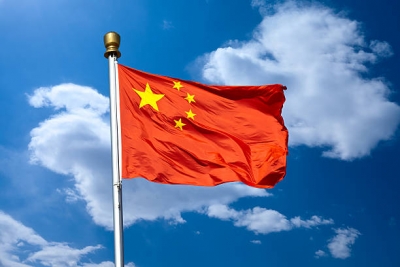New Delhi, March 8 : “China is not 10 feet tall”, and alarmism is undermining American strategy towards Beijing, says Ryan Hass, Michael H.Armacost Chair in Foreign Policy Studies at the Brookings Institution.
Writing in Foreign Affairs, Hass says that policymakers in Washington must be able to distinguish between the image Beijing presents and the realities it confronts.
“China is the second most powerful country in the world and the most formidable competitor the US has faced in decades.Yet at the same time, and in spite of its many visible defects, the United States remains the stronger power in the US-Chinese relationship and it has good reason to think it can stay that way.For all the obstacles facing the US, those facing China are considerably greater,” he said.
Hass added that during the Cold War, Secretary of Defence James Schlesinger cautioned against “10-foot-tall syndrome”: the tendency among US policymakers to view their Soviet competitors as towering figures of immense strength and overwhelming intellect.
“A similar syndrome has taken hold in the United States today, and the harms are not just analytical.Concentrating on China’s strengths without accounting for its vulnerabilities creates anxiety.Anxiety breeds insecurity.
Insecurity leads to overreaction, and overreaction produces bad decisions that undermine the US’ own competitiveness.Seeing China clearly is the first step toward getting China policy right,” he adds.
China poses the most direct test of US foreign policy in decades.Not since the Cold War has a country seriously contested US leadership in multiple regions of the world simultaneously.The combination of military strength, economic weight, and global ambition makes China a different and more complex challenge than the Soviet Union presented during the Cold War, Hass said.
“But much of the shift in Washington has also been driven by a growing sense of panic about China’s strengths, leading to a bout of American insecurity.Such panic is unlikely to prove constructive: an alarmed focus on degrading China’s strengths risks causing the United States to focus too little on the more essential task of bolstering its own.”
Hass warns that any attempt to use the China threat to spur domestic reform or overcome domestic division is likely to do more harm than good.
At home, inflating the China threat will encourage the political weaponisation of the issue, with China serving as a tool for ambitious politicians to discredit opponents for being weak.
Hass adds that self-confidence should foster a steady, patient, and wise response to China’s rise, one that can attract broad support at home and abroad.
Some elements of this approach will require standing up to Chinese actions that challenge US interests and values even while pushing Beijing to contribute more to efforts to address transnational challenges, such as building a global disease surveillance network and decarbonising the global economy
.






